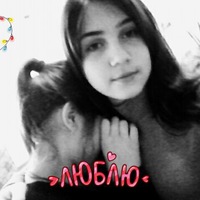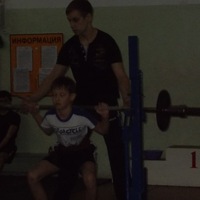
в каком ряду во всех словах суффикс ец имеет одно и тоже значение? 1 боец, мудрец, характерец 2
испанец, немец, иностранец 3 старец, хлебец, братец 4 морозец, хитрец, борец 0
0
 0
0
Ответы на вопрос
 Внимание! Ответы на вопросы дают живые люди. Они могут содержать ошибочную информацию, заблуждения, а также ответы могут быть сгенерированы нейросетями. Будьте внимательны. Если вы уверены, что ответ неверный, нажмите кнопку "Пожаловаться" под ответом.
Внимание! Ответы на вопросы дают живые люди. Они могут содержать ошибочную информацию, заблуждения, а также ответы могут быть сгенерированы нейросетями. Будьте внимательны. Если вы уверены, что ответ неверный, нажмите кнопку "Пожаловаться" под ответом.

 0
0
 0
0

Words with the suffix "-ец" and their meanings
The suffix "-ец" is a common suffix in the Russian language that is used to form nouns. It typically denotes a person who possesses a certain characteristic or engages in a particular activity. Let's examine the given options and determine which ones have the same meaning for the suffix "-ец":
1. Боец (fighter) - This word refers to a person who fights, typically in a professional or competitive context. The suffix "-ец" in "боец" indicates that this person is engaged in combat or fighting activities.
2. Мудрец (wise person) - This word refers to a wise or knowledgeable person. The suffix "-ец" in "мудрец" indicates that this person possesses wisdom or is known for their intelligence.
3. Характерец (person with character) - This word refers to a person who has a strong or distinctive character. The suffix "-ец" in "характерец" indicates that this person possesses a particular character trait or quality.
4. Испанец (Spaniard) - This word refers to a person from Spain. The suffix "-ец" in "испанец" does not have the same meaning as in the previous examples. It simply denotes the nationality or origin of the person.
5. Немец (German) - This word refers to a person from Germany. Similar to "испанец," the suffix "-ец" in "немец" denotes the nationality or origin of the person.
6. Иностранец (foreigner) - This word refers to a person from a foreign country. Again, the suffix "-ец" in "иностранец" indicates the nationality or origin of the person.
7. Старец (elderly person) - This word refers to an elderly or old person. The suffix "-ец" in "старец" indicates that this person is old or advanced in age.
8. Хлебец (bread maker) - This word refers to a person who makes bread. The suffix "-ец" in "хлебец" indicates that this person is engaged in the activity of making bread.
9. Братец (little brother) - This word refers to a younger or little brother. The suffix "-ец" in "братец" does not have the same meaning as in the previous examples. It simply denotes the diminutive form of the word "брат" (brother).
10. Морозец (person who brings frost) - This word refers to a person who brings frost or cold weather. The suffix "-ец" in "морозец" indicates that this person is associated with or brings frost.
11. Хитрец (cunning person) - This word refers to a cunning or sly person. The suffix "-ец" in "хитрец" indicates that this person possesses cunning or slyness.
12. Борец (wrestler) - This word refers to a person who wrestles or engages in wrestling. The suffix "-ец" in "борец" indicates that this person is engaged in the activity of wrestling.
Based on the analysis above, the words that have the same meaning for the suffix "-ец" are:
- Боец (fighter) - Мудрец (wise person) - Характерец (person with character) - Старец (elderly person) - Хлебец (bread maker) - Морозец (person who brings frost) - Хитрец (cunning person) - Борец (wrestler)
These words all indicate a person who possesses a certain characteristic or engages in a particular activity.
 0
0
 0
0
Топ вопросов за вчера в категории Русский язык
Последние заданные вопросы в категории Русский язык






-
Математика
-
Литература
-
Алгебра
-
Русский язык
-
Геометрия
-
Английский язык
-
Химия
-
Физика
-
Биология
-
Другие предметы
-
История
-
Обществознание
-
Окружающий мир
-
География
-
Українська мова
-
Информатика
-
Українська література
-
Қазақ тiлi
-
Экономика
-
Музыка
-
Право
-
Беларуская мова
-
Французский язык
-
Немецкий язык
-
МХК
-
ОБЖ
-
Психология
-
Физкультура и спорт
-
Астрономия
-
Кыргыз тили
-
Оʻzbek tili















